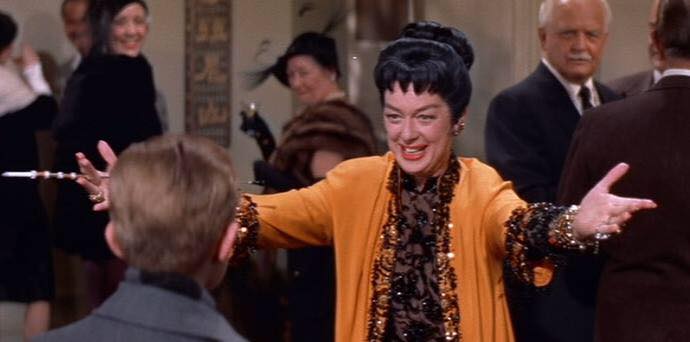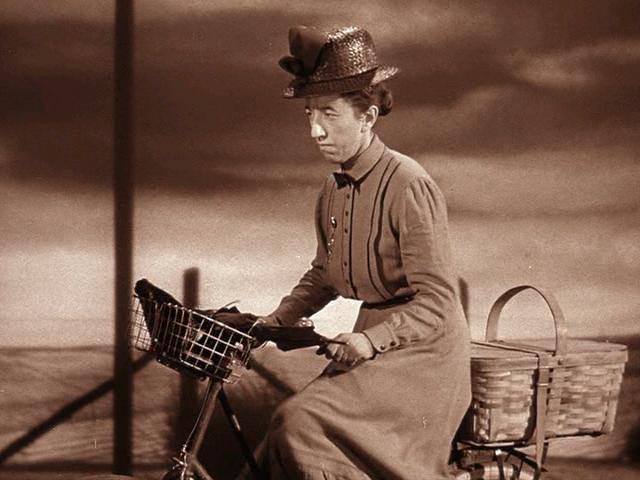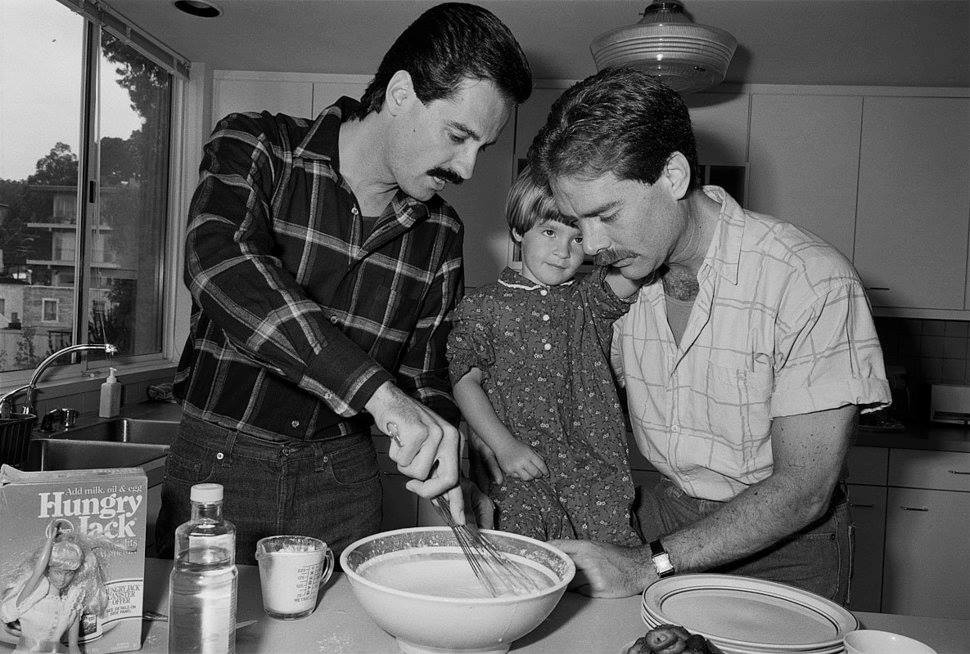It’s a funny thing. You hit 48, well into that territory at which you can be definitively described as “pushing” fifty, and you’re gay, you’re content with an ordered, adventurous, artistic life of one new challenge after another, and suddenly—everything’s new, and different.
It was a rough start.
It wasn’t rough with Little Miss, of course, who regarded me from the first day she met me with the combination of curiosity, enthusiasm, and occasional disbelief that particularly canny children exhibit. She invited me straight into her games, into her artist’s salon where she painted a figure in extra-wet watercolors, then handed me a brush, and said “Now you scribble.”
“There?”
“No. There.”
I started with the watercolor brush, but she reached over.
“No. Not that color. This color.”
I paused and looked her in the eye. This kid is something.
“What’s your favorite color?” I asked.
She pursed her lips, pondering, then said “Black.”
Oh my. Here’s a mind I can fathom.

It all caught me off guard—the new gentleman in my life, The Troubadour, was sweet and earnest and playful and man, I was warming up to that guy more quickly than I expected, and suddenly, here was his daughter, Little Miss, too. Here was Little Miss and here was her dad and here was I, a nicely settled guy with a long history of exemplary uncling skills, but a nice, comfortable separation from parenting, and soon it was an adventure, and soon we were together more and more, and—
[_] asked me, by means of trying to ascertain my fitness for being around children, “Do you have kids of your own?” We sat in her little shop, hemmed in by the few customers there for a special event, with her giving me the once-over through a pair of too-large glasses.
It was a loaded question, asked more as an opportunity to punctuate her own presumptive authority on the subject, given she already knew the answer, but I was there, meeting with her as a good faith gesture that I, at least, was prepared to be open and civil in an effort to attempt to forge a harmonious relationship with a third party who’d been demonstrating that such things are not within her spectrum of interests.
“None of my ‘own,’ no,” I said. There was no pause between my “no” and her answer, which presupposes the reply had been carefully considered in advance.
“—Oh, you don’t know, then,” she said, referencing an earlier claim in the conversation to sole authority on how things are done, the imperious look of self-satisfaction blooming on her face like a sudden outbreak of rosacea. I sensed it, and knew what to expect from the never-ending barrage of angry, bizarre texts that crossed the smartphone of The Troubadour despite my core belief that everyone, no matter how difficult, has a point at which they can be reached.
I just moved beyond it in spite of the dig, because civility in the face of assaultive, bullying personalities requires that we ignore the bait that’s dangled there like a limp, unwashed carrot in search of teeth, but I have to smirk about it even now, even after all that’s happened. Manipulative people trying to force their narratives are seldom as convincing as they think, and I’ve known my share.
I’m working with a group of autistic kids in my workplace again, as part of a school training program, and it is something that doubles my workload at times, and yet, I wouldn’t have it any other way. One of the kids, in between tasks, left the seat where the student aide asked him to wait while the other kid was doing a task that required a little more supervision, and I could hear him approach with a series of verbal tics that let me locate him in my workplace like human echolocation.
He stood in the doorway of my office, swaying, one arm tucked awkwardly up in a loop of gestures, with a sound like a periodic grunt capped with a cough.
“Hello, Rodney,” I said, with a smile. “Lovely morning, isn’t it?”
He looked up, then down, then up, then down. In decades past, I probably would have been uncomfortable with this gap in language, but I’m a grown man and I’ve had a long, action-packed expense account of a life, and we are all separated by some gulf or another that requires forbearance. Rodney turned to my bookshelf and let a hand trail across the trophies there, all honors my employer earned over the years. He looked at his hand, made a little noise, looked at his hand, made a little noise, and cycled through the loop several times before holding up a dusty hand and saying “Ah, ah!”
“Yeah, they are a little dusty,” I said, with a weak smile. Rodney picked up the clear acrylic obelisk that was an industry award we’d gotten, and shook it at me.
“Ra-ra-ra.”
I dug in my desk drawer for the little cloth I keep to polish the screen on the wretched computer that holds unwarranted pride of place in my small office and handed it to him. He took it, flapped it in the air sixteen times, then intently focused on the plastic obelisk, which he showed me with a grunt when he’d gotten it just-so.
“That’s beautiful.”
He carried on with the other trophies, making his way methodically through the books and knick-knacks while I carried on with the tedious work of designing a theater program on the computer. From moment to moment, he would request my attention, then pull back to his task, and I knew that the distraction would keep me at work late that day, but some things are more important.
“Wha-wha-wha?“
“That’s a belt pack for a wireless microphone,” I explained, then paused to show him the whole rig, with headset and everything.
“Sing sing,” he said, in a rare flourish of complete words.
“That’s right.”
“I sing sing.”
“You should.”
His smile was brief and tempered, filtered through the gestures that are Rodney’s own, but I had to smile, too.
The branch of my genetic line in which I find myself is likely to end with me, but there’s something amazing about love and care—these things make family, and make bonds, and make it possible that the things that are good about us will carry on and add to the things that are good about other people, too.
Even so, were I quicker on my feet or more inclined to challenge the contention, I’d have told the questioning woman about my nieces, who have never lived more than a block from me since the day either was born, giving me the gift of being a part of parenting two little girls from infancy to their brilliant lives as amazing, talented, distinct young adults. Unlike my questioner, who had the sum total of four years into the project of parenting a girl child, I had six times as much experience, complete with the joy of watching them and our immediate and extended family in the glorious, exasperating, surprising, terrifying, expansive, mind-opening process of working to build lives, but we’re all still trained in the heterosexist, narrow-minded notion that only parents count, or that, in her mind, at least, only mothers count.

Still, she maintained her tightly-wound illusion of equanimity and grace, and we casually talked about my work, my history, my interests, and I presented more than enough data for any sane person to work out that I come from a place of kindness and care, and she said the kind of progressive, supportive, “oh, it’s good that Troubadour is getting more comfortable with who he is” stuff that people recognize as the preferred language of grown-ups in the 21st century, even if they don’t have full faith in it. I mean—honestly, I’m a 48-year-old gay man whose lips have literally never touched a woman in anything but cartoonish chivalry, and you’re concerned that I’m a threat to a four-year-old girl child? What’s the risk? Costumes? Engaged educational play with art supplies? The mind boggles. Can people really be this uneducated in 2016?
But we reached the end of a seemingly reasonable conversation, she proffered a hug in parting and I accepted, because a hug is always a good thing, and I left feeling like maybe, just maybe, I’d made an impression.
Of course, optimism is often dashed, and not twenty minutes had passed before [_] had gone on a wild homophobic rampage via whatever communications medium necessary, contacting neighbors, people in the community, and even Troubadour’s former girlfriend with a bizarre narrative of abuse and danger and sleaze and even, absurdly, contacted Troubadour’s divorce lawyer, who called up, amused, and asked him what the insane message was all about. Thing is—[_] had known about The Troubadour’s formerly worrying realization, the one that led me into his life, and had used it as a threat, as a tool of blackmail, and had frequently threatened often to call his family out in the mountains to tell them his dirty little secret.
Of course, this was a strange thing for me.
I have no dirty little secrets, other than the recipes I’ll never share, my quiet places that are quiet because they’re unknown, and my most practiced techniques of the arts. I’ve never smoked, don’t do drugs, don’t drink, and am such a meticulously cautious and law-abiding driver that my passengers will often roll their eyes and growl at me to just pass, already, and I’ve been paying taxes on freelance income I could have gotten away with leaving unreported since I’ve been doing my own taxes.
I’ve never known shame over who I am, and what I am, from those who raised me, but I was raised by giants among parents—the kind of people who taught me to love and to be honest and ethical and kind, and to value myself as what I am, what Fred Rogers best described when he looked to us from the television and said “Remember—of all the people in the whole world, there is only one person just like you.”
How the heck did I end up stuck with [_], too?
Fortunately, despite her continuing, keening, desperate attempts to generate a narrative in which she is the victim, there are enough turncoats in her circle to let us know what the newest hysterical onslaught of nonsense is.
Such a sadness, that, but that’s out of my control. I can only be the best person that I am, and when you’re genuine and open and decent, the right people will know you by the content of your character. The rest? Well, they make trouble, because they thrive on drama, and every good adventure needs challenges to meet and overcome.
I will not be bullied. This is the 21st century.
Do I have kids of my own? Oh yes.
I have my adventurous, energetic, insightful nephew, Cleve, living just twenty minutes away after his midwestern youth, and I have my brilliant, thoughtful, playful philosopher, Rainey, living next door, and my can-do, focused, sensible and yet delightful Cora has moved south with the gentleman in her life, on her way to new adventures, but she’ll never be far from my heart. I have my niece from another bloodline, Maggie, who lives far from me now, but who will always be my lucky treasure, and I have kids from my sister’s now-ex-in-laws who call me “Uncle Joe,” and I have the kids I counseled as an LGBT peer counselor for the NCCJ and the Montgomery County Human Rights Commission, and the at-first sullen, society-beat kids I worked with in a year-long community art project for at-risk youth, and the kids I’ve taught art and music in school programs throughout Baltimore, and the list goes on and on.
So why would I ever think, even for a moment, to answer anything but “yes?”

Besides, my people have a grand tradition of dealing with a world that’s designed to give control to bigots and mean-spirited people with ugly hearts, and we are strong. The world told us that we were not good enough, or decent enough, or selfless enough, and we proved them wrong, time after time. They cried “molester” and “pervert” and made up the most vile, disgusting lies to justify their bigotry, but the tide’s turned, and the cockroaches are scattering in the daylight.
Yet there’s that old feeling, the feeling I remember from being a kid, from being bullied, and I know how bullies work, and how they pull your strings and push your buttons and work their little conversational conjuring tricks in making themselves out to be the victim, even when they’re doing the most wretched, ugly things to other people. I remember that feeling well, even after all these years, and I remember what I wanted then—just leave me alone. Just live your life the way you want, and be whatever you need to be, but leave me out of your games.
I sat with the feeling, and remembered, and practiced some tonglen meditation, taking in a breath, doing my best to pause and understand where the ugliness was coming from so that I could respond with compassion when I am faced with aggression, even as I know I will fail more than once. The prize, though, is an intact heart, even in the face of the worst kind of vindictive, senseless, obsessive pursuit of getting one over.
Each passing moment is another chance to turn things around.
“Joebie?”
“Yes, hon?”
“What’s your favorite color?”
“Green.”
Little Miss tilted her head.
“What else?”
“Brown.”
“Brown? Nobody’s favorite color is brown.”
“Maybe not, but my second favorite color is brown.”
“Do you wanna scribble brown over here?”
“Yes, hon. I think that region would love to be luxuriously brown.”
“Luck sure your whaa?”
“Luxurious. Meaning lush, vibrant, and saturated with gorgeousness.”
“You are very silly, Joebie.”
Maybe a little.
© 2017 Joe Belknap Wall
The loveliest stories are the truest ones.